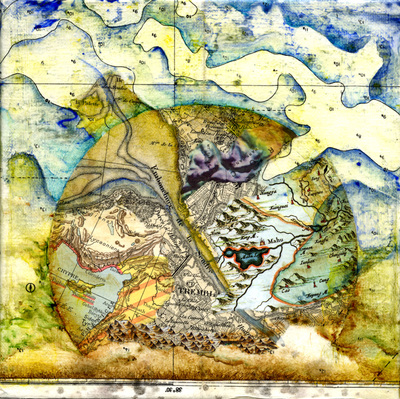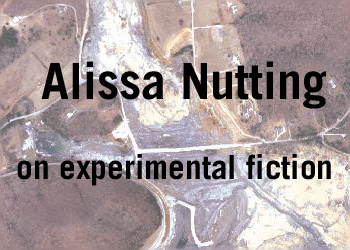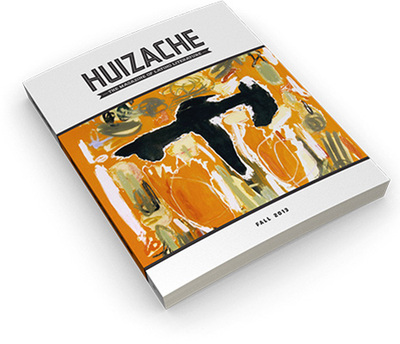ISABELLE DOYLE
Spellbound
Emily is mean as fire. She covers herself in embers until her whole shell glitters. Straight shooter, rapid revolver. We sit together for hours and hours printing out blurry pictures of Klimt’s women dying in crepuscular lavender, long and gold and glittering. She acts out the paintings, bares her teeth like one of Bosch’s bald beasts, pretends her fingers are coming out of her eye sockets, freckled knuckles bruising her sleep-caked eyes.
Months after meeting her I put my arm around her. She knocks me off, her hand hitting my face. I am so shocked I keep laughing, I laugh even harder, and my cheek hurts for painful and perfect seconds after. She clutches me, digs her nails in, puts her face close to mine. Her mouth says to my mouth I shouldn’t touch her so quickly, I should warn her next time. Warn her. Her hair bloodying my arms, live spirals.
She comes to me like a spider crawling from the wound of her body. She tells me that back home she would shoot birds down with a slingshot and a white stone, that she would dream about picking the birds apart and eating them with her hands. I think about her coming up behind me with bird blood on her fingers, twining her arms around my waist, resting her head against me, leaving the imprint of her chin chipped into my shoulder.
We spend weeks and weeks alone in a house empty as an apocalypse, acting out paintings and guessing at each other. Who am I? I’m a toilet drowning in ink. I’m a Pizza Hut all covered in wildflowers. Who am I, Emily? I’m René Magritte, my choking kissing your choking.
Sometimes she leaves me for days and won’t talk to me, and won’t tell me why, just comes back to me with a tenderness that makes her sudden absences more violent, every time. And all the time I feel her sharply and perfectly moving toward and away from and toward and away from me, a starry silence, long-legged genius of indifference. She teaches me how to swallow my own end like a hoop snake, how to lie among tall grass and wait. She teaches me how to rest between a storm’s knees, how to feel it when she splits my silver skull with white ease. My shattered head.
We talk about the parts of her she says are gone. She keeps saying “dead girl”. She’s not the dead girl, though—she’s the girl who stayed alive. She says Yes, I’m the girl who stayed alive, and even I am just ash on the inside.
She is going to live inside my body forever, so I’m still no safer, though it’s years after. Time does nothing but break my fevers into punctuation. My hands spend whole days shaking, learning conjugations as other ways of aching. Ink humming, taking shape. Now she’s an asterisk next to my name.
How babies are made
She who took my chin in her fingers white as nightcrawlers, whose eyes glinted gray, who pinched my moon waist, who took my mouth away, who made landscapes of quiet I moved through to reach her: radio gathering static in our kitchen, who told me gods of women made rain outside, windows glowing with the blood of moths, linen-skins, slow-cookers, yellow-kissers, midnight-ruiners, who made me clotted cream in her open center, who let me choke on my voice at the canonical hour like Mary Magdalene did on her knees in the desert, who told me to stay split open and ask for nothing; I fall into glass and try to forget her and all shattering comes in the shape of where I came from her; she who drew the boulder from the heaven-empty tomb, who made me fish soup in an aromatic room, who broke her dry heels and danced on her toes, who broke our silver spoons and used bone to stir, and made me the nothing that is longing for never, and made me the never that is longing for her.
Mama's Girl
Persephone knew a thing or two about bitterness even before she was a dead girl walking. It’s one thing to be dragged into hell; it’s another to live with your mother humming in your blood and bone—to be born with a wound that her want shines through. So when Hades stole the daughter and branded her with spiders that made spirals up her thighs and ran in rings around the flowers Demeter painted on her shoulders, when he squeezed her with love until her body was blue, it was just another cage her soft skin got her in, nothing new. Hades’ mother loved him too much, too, cut the crusts off his sandwiches and made his twin-size bed, and sang him to sleep and cradled his head, and look what little good it did. Look at the person he is.
Copyright © June 2020 Isabelle Doyle

Isabelle Doyle’s poems can be found in Bluestem Magazine, The Red Eft Review, The Blue Pencil Online, Cargoes, Thin Noon, The Round, Clerestory, and Triangle. Her poetry manuscript, BABYFACE, was the 2018 recipient of the Frances Mason Harris Prize at Brown University.









